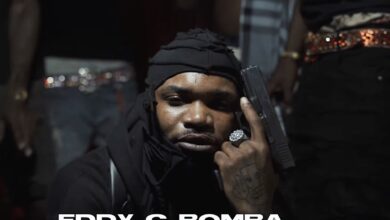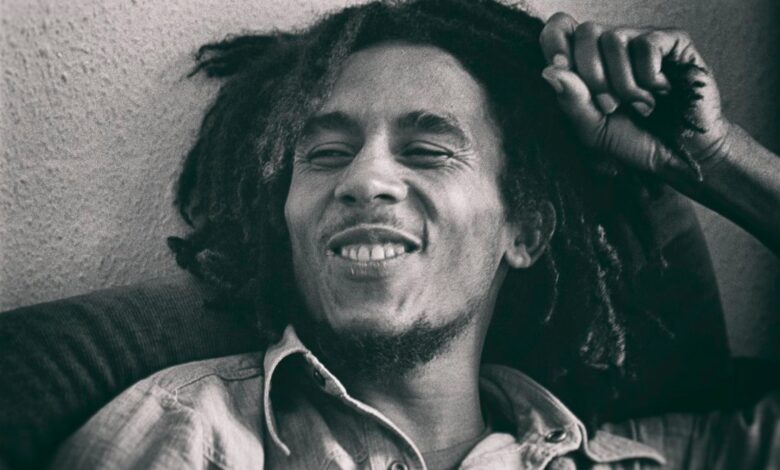
How Bob Marley’s ‘One Love’ Became One of the Biggest Songs in the World
Share
Comment
November 5, 2024
First released in the 1960s, Bob Marley‘s song One Love may have started as a little-known ska track, but over the years, it has taken on a life of its own to become one of the most popular songs ever.
Marley and his group The Wailers, consisting of Peter Tosh and Bunny Wailer, released One Love in 1965, with Marley penning the song himself. As the artistes’ roots were in Ska and Rocksteady, with Reggae not yet the defining theme of their music, the original version of the song is quite different from the one many fans know today.
With a lively rhythm and fast upbeat tempo, One Love‘s 1965 version reflects the group’s earlier musical roots. In addition to Marley’s original lyrics, One Love also includes an interpretation of the gospel song People Get Ready by the American group The Impressions.
Marley utilised The Impressions lyrics “There’s no hiding place against the kingdom’s throne,” and “There ain’t no room for the hopeless sinner. Who would hurt all mankind just to save his own,” to add further depth to his lyrics.
People Get Ready’s inclusion on One Love proved to be a wise choice, as the track later became a musical influence on the civil rights movement as black Americans too united for change.
While the original version of One Love may be less known to Marley’s fans, it is not without its own achievements. In 2007, the song was honoured with an induction by the American Recording Academy to receive a Hall of Fame award for its historical significance.
Following its initial release, People Get Ready was added to the track’s title, as One Love/People Get Ready for the song’s now classic 1977 version. Featured on Marley and The Wailer’s album Exodus, One Love/People Get Ready was revamped with Reggae’s defining one-drop rhythm and its tempo slowed.
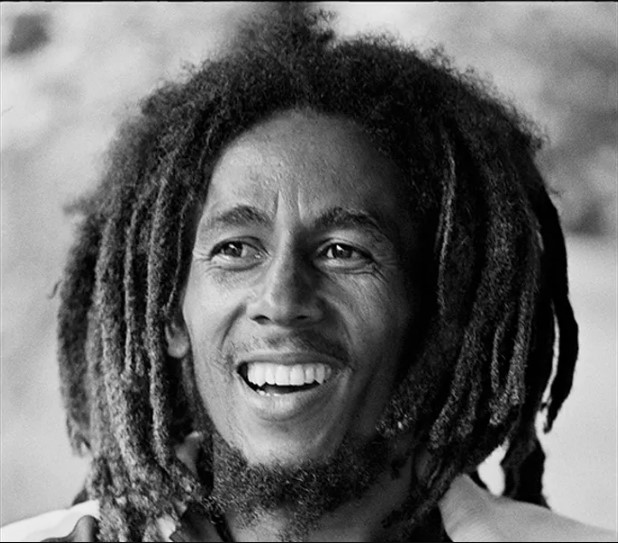
While One Love‘s melodies may have changed over time, its famous lyrics have maintained Marley’s message of peace. The singer, who had been raised Catholic, is said to have just begun his journey into the controversial Rastafarian religious movement while writing One Love.
The religion’s founding principles as well as its teachings are said to have influenced the lyrics of the song. More so than any other of Marley’s famous tracks, One Love remains a testament to how the artiste advocated for peace and unity.
In addition to the song inspiring the name of Marley’s famous One Love Peace Concert, it also inspired the title of his biopic Bob Marley: One Love, as it perfectly encapsulates Marley’s musical message. Despite race, religion, or fans’ economic background, 59 years after its release, One Love continues to resonate with people around the world.
While many songs of Jamaican origin struggle to even appear on international charts, Marley and his music remain a fixture on many of them. One Love/People Get Ready is currently #8 on iTunes’ Reggae songs chart.
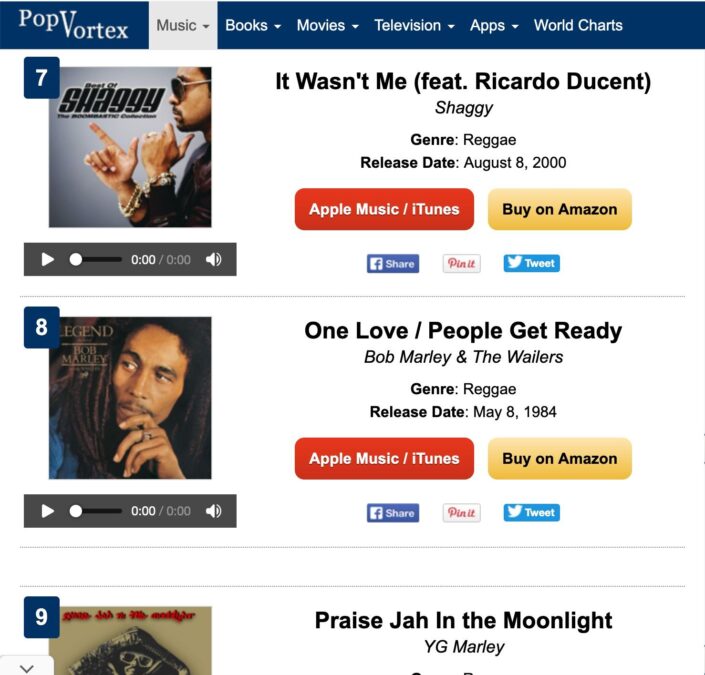
Furthermore, Marley’s posthumous album Legend, which features the famous track, has now spent 251 weeks on the Billboard Reggae Albums chart and 250 weeks at #1.
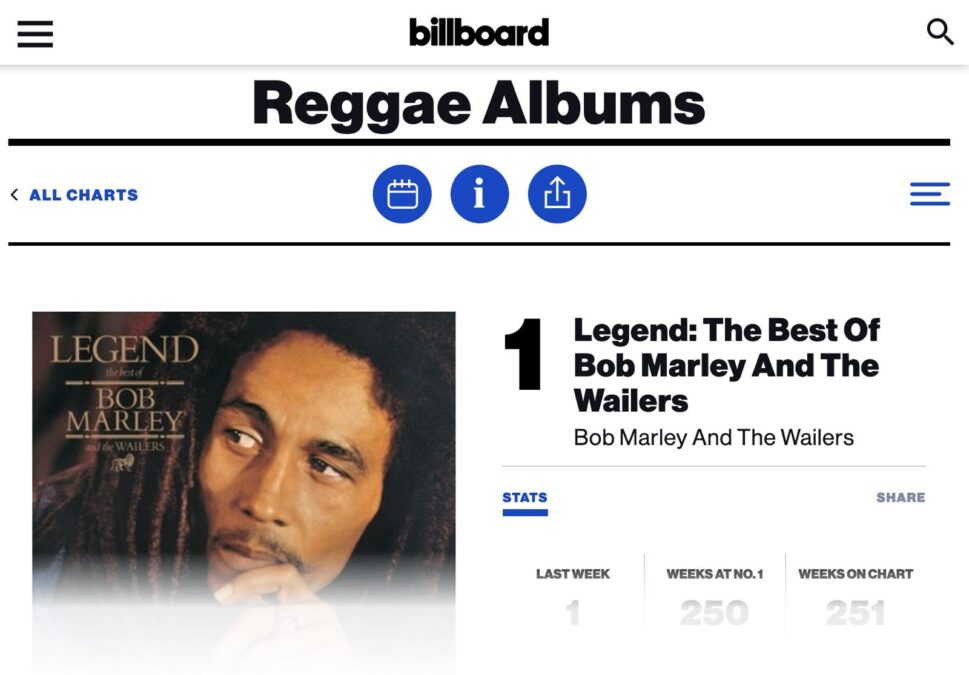
[ads3]
RELATED:
- Bob Marley: One Love “Honest” Movie Review
- Bob Marley: One Love Filming Location, Strawberry Hill Hotel Selling for US$16.8 Million
- Jamaicans React to Bob Marley Interview Reenacted by Kingsley Ben-Adir – Watch Videos
